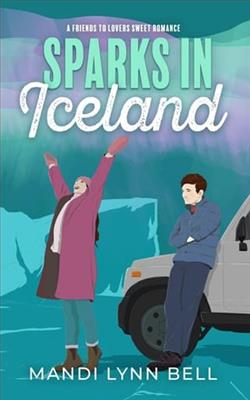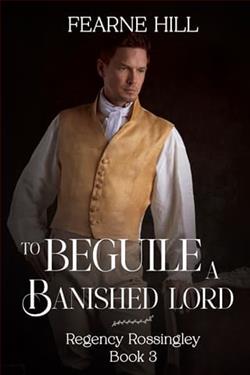Page 147 of Jax
We hadn’t called it goodbye.
But still, it felt like one.
33
Jax
We movedlike a shadow with a heartbeat—silent, slow, with no wasted motion beneath the storm. Rain streaked down in waves, turning the windshield into static while streetlights fractured against the blur. Kansas City’s industrial sprawl lay buried under rust, steam, and the heavy quiet of a place that had already given up. No headlights cut through the alley when we parked four blocks from the target, wedged between two forgotten loading bays. Inside, the air thickened around us: sweat, gun oil, breath. There were no words. There didn’t need to be, at this point in the game. That was how we operated—deliberate, silent, deadly.
Sully checked the straps across his chest again, for the seventh time. He moved like someone anchoring himself to the moment, buckling down not for protection, but out of a need to adhere to some unspoken ritual.
Niko sat opposite, assembling his last mag with careful repetition. Click. Press. Slide. Repeat. His attention wasn’t here; it was already fixed on the breach. His hands repeated the motion not out of necessity, but belief. His superstition lived in the ritual of readiness. Carrick stayed at the wheel, body still,one hand near the gearshift, the other relaxed but ready. No commands. No tension. Just calm, coiled tight enough to strike. He hadn’t spoken since we stopped, but his silence carried its own gravity.
Deacon rechecked comms subtly; one nod, one minor shift in his earpiece. No quip. No words under his breath. Just focus so sharp it cut through the stillness. He didn’t look my way, but I felt him watching in the way trained men do, without turning their heads. I kept mine down, breathing steadily, hood drawn low. Not scanning the storm, but retracing the strategy. Mapping every inch of the approach until it felt like muscle memory.
Three rooftops, two sniper nests likely, if they had any at all. Best to assume they did. The south entrance was exposed. North had the better angle. Our route. Sully and I would go in first. One corridor ran from the loading dock to the center of the building. That was the artery. Cut it fast, and everything else bleeds. The kill box lived there, if the blueprints still held. If recon hadn’t lied. Assumptions got you dead. Analysis kept you living long enough to do something with it.
The storm pressed in, loud and relentless against the roof. Thunder moved slowly in the distance, more warning than wrath. We didn’t flinch. Carrick looked back once—one glance. That was enough. This team didn’t need orders. We already knew. I flexed my fingers around the rifle grip, shoulders shifting beneath my gear. My hand twitched toward a data pad that wasn’t there. No numbers left. Just execution. Just her.
She was still out there, barefoot in my memory, mouth still ghosting against mine. Her letter pressed flat beneath my vest, skin-warm and paper-thin, folded once, weighted like a promise.
The door slid open with a hiss, and the rain hit like it had been waiting for hours—sharp, cold, and full of purpose. Windshoved against us in gusts, and the scent of ozone sliced through the van: metallic and electric, edged with oil and asphalt. I stepped out first, boots silent on wet pavement, rifle butted hard against my shoulder. The barrel sat cold against my cheek as I checked every angle through the low-light scope, ready to pull the trigger at the slightest hint of movement. Anyone who would be out at this time of night and in this weather was here on purpose, which meant they would need to be put down.
No lights. No movement. Just shadows where heat used to live. Nothing waited here.
Steam curled from sewer grates, the street slick with new rain and old grime. Lightning cracked across the sky, brief and blinding, exposing the block like a wireframe, every edge of every structure lit up like the bones of a dead city. The temperature had dropped. The pressure had shifted. This storm was upon us. And it wanted blood.
The others moved behind me. Silent. Armed. Ghosts wearing skin. Not a word between us, just years of rhythm and readiness. My hand came up, closed fist, then two fingers forward. Move.
The team scattered, melting into the edges, silenced rifle barrels preceding their every move. Carrick and Niko broke toward the south lot, one calculating, the other carving space with each step like his body didn’t need permission. Deacon veered east, disappearing into shadow. Sully and I took the northern path, footsteps soft over gravel and water, pressed tight to a wall that had probably seen worse than us.
The rear dock had a guard. Young. Distracted. Too confident in the silence. He smoked with one hand, letting his rifle sag with the other. He didn’t look behind him. Never heard Carrick. The blade slid in clean below the ribs and angled up through the heart. Fast. Bloodless by our standards. He dropped. Nikolai caught him mid-collapse, hand over his mouth to catch thebreath he didn’t get to take. I moved in. We dragged the body into an alcove and slumped him behind a broken awning.
The blood on my gloves was already warm through the storm. I wiped it off. Nothing moved. Nothing screamed. Forty-five seconds. That’s what the watch said.
I clicked twice on comms. Sharp. Measured. Signal sent. Movement blinked in my periphery—confirmation. South utility door. Steel latch. Wired alarm. It was the one piece of security tech we had been fairly certain was there, based on surveillance footage we’d secured from a nearby traffic camera. Niko had run it a dozen times on memory and blueprint. He’d beaten it four times. Carrick would breach the second it cleared, and we’d be in before the rain could wash the blood off the concrete.
Sully had the dock bay—larger target, heavier defense. Heavier by two locks and a bolt plate, as it turned out. He’d handle the tech solo, keeping half an eye on the open yard behind him. Timing was everything. One late entry, and the others were exposed.
I had the cleaner door. North side. Narrow corridor. Less cover, but a direct line to the center. Still, direct didn’t mean safe. It meant predictable, and predictable was deadly, unless you moved faster than the math.
Rain carved down the back of my neck, sharp as blades. I adjusted my hood and raised two fingers. Sully nodded, shifting to cover my flank, all quiet muscle and barely leashed violence. The man was a furnace, warm, until he wasn’t. And when he wasn’t, things tended to get broken. Or dead.
Lightning flashed once more overhead, bleaching the alley white like a morgue strip light. Thunder crashed two seconds behind it. Go.
I moved first, one shoulder to the metal, my left hand already ghosting over the keypad lock I found there. I grunted in frustration, but wasn’t entirely surprised. I knew how todeal with these. The texture of the buttons told me everything I needed—the wear pattern, the pressure range. Not digital. Old-school electric override. I reached into my pack and pulled out the necessary tools and set to work, every movement precise. Controlled. And in less time than it took to draw a full breath, the lock disengaged with a mechanical click. Like the door knew better than to argue.
It opened inward.
Darkness met us like a held breath.
We stepped inside, boots soundless over cement, every motion sharp with muscle memory and the kind of clarity that came only when death was close enough to touch. My rifle came up once more, low-light optics sweeping the hall. No sound. No lights, save for the faint glow of emergency strips half-buried under rust and dust. Behind me, Sully’s presence settled into place, steady as gravity, quiet as thunder before the break. Right where he’d always been. The Reapers had breached, and somewhere ahead of us, the war was waiting with bated breath.
I felt it the moment we crossed the threshold, like the building exhaled something stale and thick that didn’t belong. Inside the warehouse, everything felt wrong in a way I couldn’t fully articulate. It was the kind of wrong that embedded itself in the lining of your lungs and sat there, waiting. The air was too warm for a structure battered by storm and time, carrying the kind of heat that came from bodies, movement, electricity—recent presence. Dust floated through the weak beams of emergency lights, caught like static in the flicker of motion sensors that hadn’t fully powered down. It was like the building wanted to go dark, but couldn’t quite manage it, not with so many footprints still echoing through its bones. Our steps may have been intentionally quiet, muted by training, but the space itself wasn’t silent. It hummed with something residual, thekind of frequency that told you someone had been here recently. Maybe still was.
I swept right, instinct and plan aligned. Sully followed close, deliberate and solid, the kind of presence you feel more than hear. Our boots stayed soft on the concrete, but the space around us shifted, like the building knew we didn’t belong. The deeper we moved, the thicker the smells became. Rust. Oil. Burned machine residue clinging to the air like sweat on steel. But beneath all that came the human stench—sweat, preserved meat, blood. Not fresh enough to drip, but fresh enough to matter. It hit fast. Clean data. Something had happened here, and recently.
Sully’s voice crackled low in my ear, barely a whisper, even in the comms. “This layout’s wrong. They’ve sealed shit off. Rerouted flow. Blueprint’s a damn lie.” A beat passed, then his humor slid through like a blade. “Guess somebody didn’t want company.”















